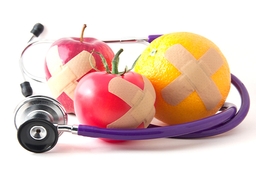Tips to Keep Your Liver Healthy

Every night, Mr. Andi often felt tired even though he hadn’t done any heavy work. At first, he thought it was just due to aging. But one day, he noticed that his eyes looked yellowish. After a medical check-up, the doctor told him that he had a liver problem. This came as a shock, since he never felt truly sick before.
Stories like Mr. Andi’s are not uncommon. Liver disease, also known as hepatitis, often develops quietly without noticeable symptoms until it reaches a serious stage. Yet, the liver works tirelessly every day: filtering toxins, processing food, and storing the energy we need.
The good news is, there are many ways to protect your liver — from eating healthy foods and adopting a wise lifestyle to getting vaccinated.
How hepatitis develops
Hepatitis doesn’t appear overnight. It can begin with inflammation caused by excessive alcohol consumption or toxin exposure. If left unchecked, this condition may progress into fatty liver disease, where fat builds up in the liver tissue.
Over time, repeated inflammation can lead to fibrosis, the formation of scar tissue. If ignored, the damage worsens and may develop into cirrhosis, when liver cells die and liver function is impaired.
The most severe stage is liver cancer, which often occurs after years of chronic liver damage.
The bright side is, in its early stages, liver damage can still be managed — and even reversed — if lifestyle changes are made early enough.
Early symptoms of liver damage

Signs of liver damage are often subtle and easy to miss. In the early stages, someone may feel tired, nauseous, or lose their appetite. Yellowing of the skin and eyes (jaundice) and itching can also appear as warning signs.
As the disease progresses, symptoms may become more severe, such as abdominal bloating, easy bruising, vomiting blood, or confusion caused by toxin buildup in the blood.
Recognizing symptoms early is crucial so treatment can begin as soon as possible.
Foods to watch out for

The liver is strongly affected by what we eat every day. One of the biggest threats is added sugar. Refined sugars found in sweet drinks, cakes, or candies promote fat accumulation in the liver.
Large amounts of fructose, especially from high-fructose corn syrup (HFCS), push the body to produce more fat and disrupt the liver’s ability to eliminate it. As a result, the risk of fatty liver disease increases significantly.
Healthy food choices for the liver

To keep your liver healthy, choose foods that provide optimal nutrition. Lean protein sources like chicken, fish, and lean beef support liver cell regeneration. Plant-based protein from tofu, edamame, and beans is also a great option.
Leafy green vegetables such as spinach, kale, and lettuce are rich in vitamin K, which plays an important role in blood clotting. Compounds in green vegetables have even been shown to reduce the risk of non-alcoholic fatty liver disease.
Berries are also beneficial thanks to their antioxidants that fight inflammation.
Healthy fats from olive oil, nuts, and seeds can help protect the liver. Meanwhile, oatmeal and other high-fiber foods support digestion, making it easier for the body to flush out toxins.
For drinks, coffee has been proven to benefit liver health — as long as it’s without added sugar or creamer. Green tea also helps lower liver enzyme levels and reduce the risk of liver cancer.
Lifestyle habits for a healthy liver
Caring for your liver isn’t only about food — lifestyle matters too. Limiting alcohol intake is one of the most important steps. Regular exercise, at least 30 minutes almost every day, helps with weight management and reduces the risk of fatty liver.
It’s also important to manage cholesterol, triglycerides, and blood sugar levels, since diabetes and fatty liver disease are closely linked. With a balanced diet, regular exercise, and medical treatment when needed, the risk of complications can be greatly reduced.
Don’t forget: Hepatitis B vaccination
All efforts to maintain a healthy diet and lifestyle will be far more effective when combined with vaccination.
The hepatitis B vaccine is the best protection against infection that can damage the liver in the long run. It is safe, effective, and helps prevent serious complications, including cirrhosis and liver cancer.
Protect your liver today. Get your Hepatitis B vaccination at GWS Medika Clinic, a healthcare clinic in Jakarta, and schedule regular liver check-ups to live healthier and stay safe from serious risks.



